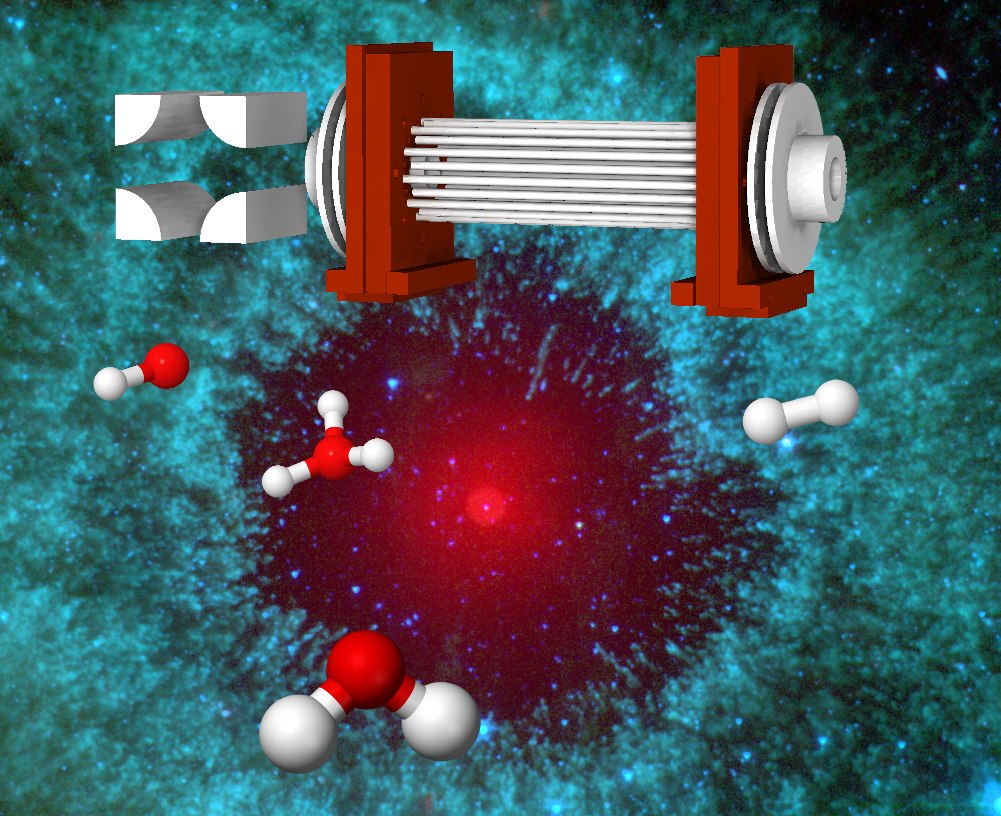
Student: Hernández Alvarez Octavio Emmanuel
Školitel: RNDr. Štěpán Roučka, Ph.D.
Konzultant: Doc. RNDr. Radek Plašil, Ph.D.
Stav práce: zadaná
Anotace:
The chemical processes in the interstellar environment play a major role in the process of star and planet formation. Astronomical observations of molecular spectra allow us to obtain a wealth of information about the observed objects - their chemical composition, mass distribution, velocity, temperature, ionization rate, and even their age and origin. However, interpretation of these data requires chemical modeling, which is based on our knowledge of rate coefficients of relevant chemical reactions. Considering that the interstellar medium is typically far from thermodynamic equilibrium, thermal rate coefficients are often not adequate for astrochemical models and state-to-state reaction rate coefficients are required.
The main aim of the present work is an experimental study of non-equilibrium ion-molecule reaction rate coefficients in a radiofrequency ion trap and in plasma afterglow. A suitable problem for investigation is the influence of H2 rotational excitation on its reactivity, which can be studied using a para-hydrogen generator. We are interested, for instance, in the isotope exchange reactions of H2 with H2D+, D2H+, and D3+. These reactions are astrophysically relevant and a strong dependence of their rate coefficients on the H2 rotational state is expected. The nuclear spin states of the H3+ isotopes can be monitored using action spectroscopy directly in the trap. We also propose to study methods of production of vibrationally excited H2 molecules with the aim to investigate their reactivity in endothermic reactions.
Computational study of non-equilibrium chemical kinetics is an integral part of this work. It will be utilized for 1) interpretation of the measured data 2) analysis of the consequences of the measured rate coefficients for astrochemical models 3) design of new experiments.
